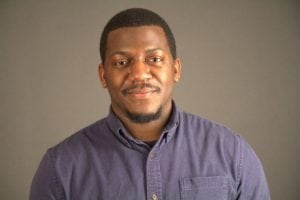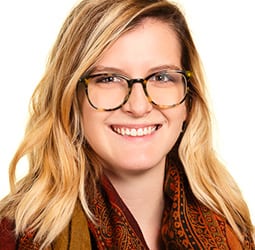Rising Star winner Adam Harris is the staff writer at The Atlantic, covering education. He had a winding path to journalism. He always knew he wanted to do something he found important and necessary. “I was always interested in telling stories,” he says.
He freelanced for a while before finding his niche at The Chronicle for Higher Education, before he moved to The Atlantic this year. “It was kind of a natural fit; I had an interest in federal policy and black colleges,” he said.
He says he approaches writing about race like he would any other topic. “Just following the facts,” he said. “It’s an important thing because America has issues with race that it has not yet sorted out… it is an enterprise that you have to approach with all the same journalistic rigor that you would approach any other project.”
Right before he joined The Atlantic, he wrote a piece for The Chronicle focused on black colleges in Mississippi and higher education issues with desegregation.
“There was a $500 million settlement black colleges got that was running out and the issues were never settled,” he explained. “It was a labor of love thing, where I just became so deeply [engaged in] the reporting on campus and into court records.”
The story had larger ramifications, as Maryland is going through a similar desegregation case. “They are weary of accepting the settlements that states are offering because they’ve seen how a lump sum of money isn’t going to solve the problem,” he said. “The story reminded people of some of the structural issues of higher education that don’t go away by a quick burst of funding.”
At The Atlantic, he does a mix of breaking news and longer-term projects. “It’s always something new,” he said. “Every day is different; you’re always working on a story and chasing something different. I am not always cooped up in a newsroom; I get to go out in the field and talk to people. As a journalist, you get to talk to people all day, which is one of the benefits of the job.”
However, he doesn’t underestimate the power of not talking.
“I would tell people to appreciate dead air,” he said, crediting this career-trick to his coworkers while freelancing at ProPublica. “If you’re on a call or interviewing someone in person, and they don’t really answer your question, let it be silent for a bit. Somebody is going to want to break that tension with something and sometimes it draws out the best responses.”
His other advice to budding reporters is to always ask questions. He says to always be thinking of the next question and follow the facts.
Following the facts will help bridge the distrust the public has of the media. Adam acknowledges that journalists are now required to explain their methods a little more, and that the public doesn’t understand what exactly journalists do. “We should be as clear as possible what the information is and how we got the information,” he said. “Be as clear as possible so we’re keeping that trust. As long as you’re doing that and following the facts, there’s not much more you can do… an informed public is one of the most valuable things to democracy, and that’s our job, to inform the public.”

Contributing writer

